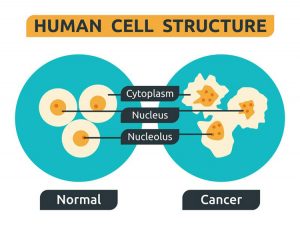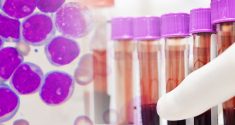Timing is everything and nowhere more so than in circadian biology. The human body runs like clockwork when it is in good health, but these intricate rhythms can be disrupted by illness. In some illnesses, identifying these altered internal clocks can be a key to new and more effective treatment. Cancer is one of many illnesses where new research in circadian biology can save lives.
Cancer and the Circadian Rhythm

The Myc Oncogene: Coding for Cancer
Many cancers have been linked to the Myc oncogene, a gene heavily involved in regulating the cell cycle. Up to 70 percent of cancers involve a mutation in this gene. When this gene is healthy, it ensures that just enough cells grow and mature in different organs. New cells are not made unless needed, and damaged cells are recycled. This process is crucial to maintaining healthy, functioning tissue. However, when the Myc gene is mutated it no longer stops cell growth when necessary. The result is that cancerous cells can grow out of control and spread to other parts of the body.
Stopping Your Inner Clocks
A new study in chronobiology has found that Myc also has a role in the circadian rhythm and that the circadian rhythm suffers in cells that are undergoing cancerous changes. Proteins made by the Myc gene bind to certain segments of DNA that are responsible for circadian rhythm and other internal clocks. The result is the overproduction of proteins and a shift in timing of the cell cycle. Every part of metabolism is affected by these changes in circadian rhythm, or our body’s 24-hour biological rhythm, including growth and differentiation.
Applying New Knowledge to New Treatments

New circadian biology research is being used every day to improve health and treat illness. Our internal clocks are one of the most important factors in our daily health and wellness, so it’s important to keep these clocks in good working order.







